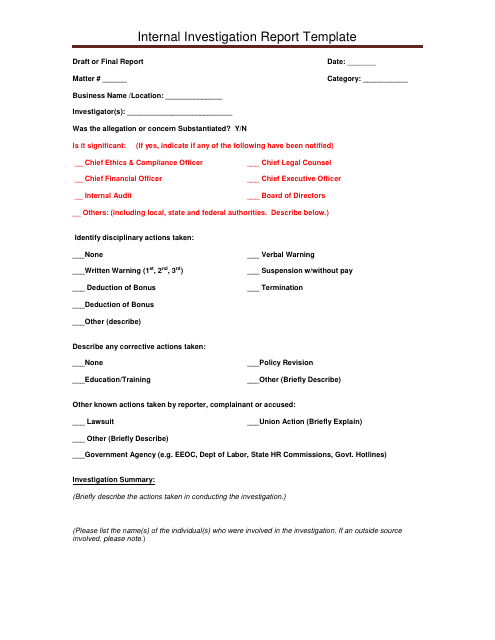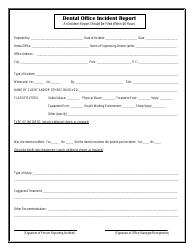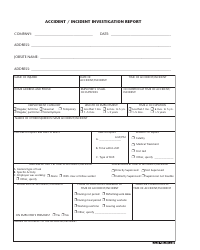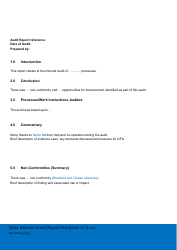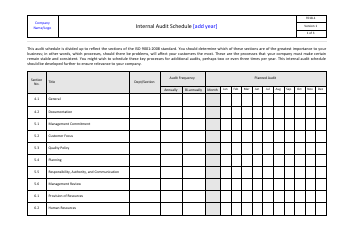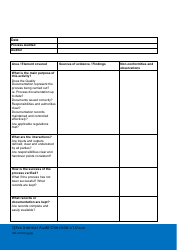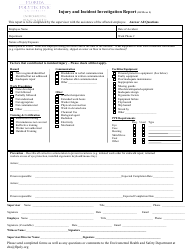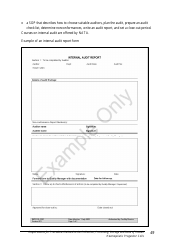Internal Investigation Report Template
An Internal Investigation Report Template is a document used to record the findings and details of an internal investigation conducted within a company or organization. It helps to gather and organize information related to the investigation, including interviews, evidence, and conclusions.
The individual or department responsible for conducting the internal investigation typically files the internal investigation report template.
FAQ
Q: What is an internal investigation report?
A: An internal investigation report is a document that outlines the findings and conclusions of an investigation conducted within an organization.
Q: Why would an organization conduct an internal investigation?
A: An organization may conduct an internal investigation to address allegations of misconduct, identify any violations of policies or laws, or resolve disputes within the workplace.
Q: What should be included in an internal investigation report template?
A: An internal investigation report template should include information about the investigation scope, methodology, key findings, supporting evidence, conclusions, and recommendations.
Q: Who should be involved in conducting an internal investigation?
A: Internal investigations are typically conducted by a team that may include individuals from human resources, legal, compliance, and other relevant departments.
Q: How long does an internal investigation usually take?
A: The duration of an internal investigation can vary depending on the complexity of the issues involved. It can range from a few weeks to several months.
Q: Who receives a copy of the internal investigation report?
A: The internal investigation report is typically shared with relevant stakeholders, such as senior management, legal counsel, and any individuals implicated or affected by the investigation.
Q: Can an internal investigation lead to disciplinary actions or legal consequences?
A: Yes, if wrongdoing is established, an internal investigation can result in disciplinary actions against employees or even legal consequences depending on the nature of the misconduct.
Q: How can an organization ensure impartiality in an internal investigation?
A: To ensure impartiality, organizations often establish clear investigation protocols, maintain confidentiality, and may involve external consultants or investigators in sensitive cases.
Q: What is the importance of documenting an internal investigation?
A: Documenting an internal investigation is crucial as it helps establish a record of the investigation process, findings, and actions taken. This documentation can be used for future reference or support in legal proceedings.
Q: Is an internal investigation report confidential?
A: Internal investigation reports are generally considered confidential and are shared with only the necessary parties on a need-to-know basis to protect the integrity of the investigation.
